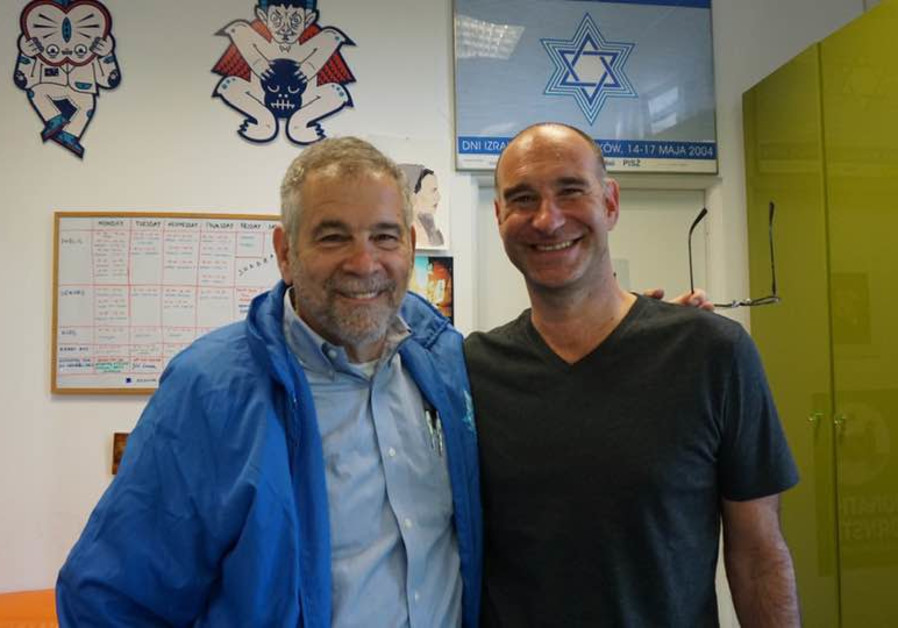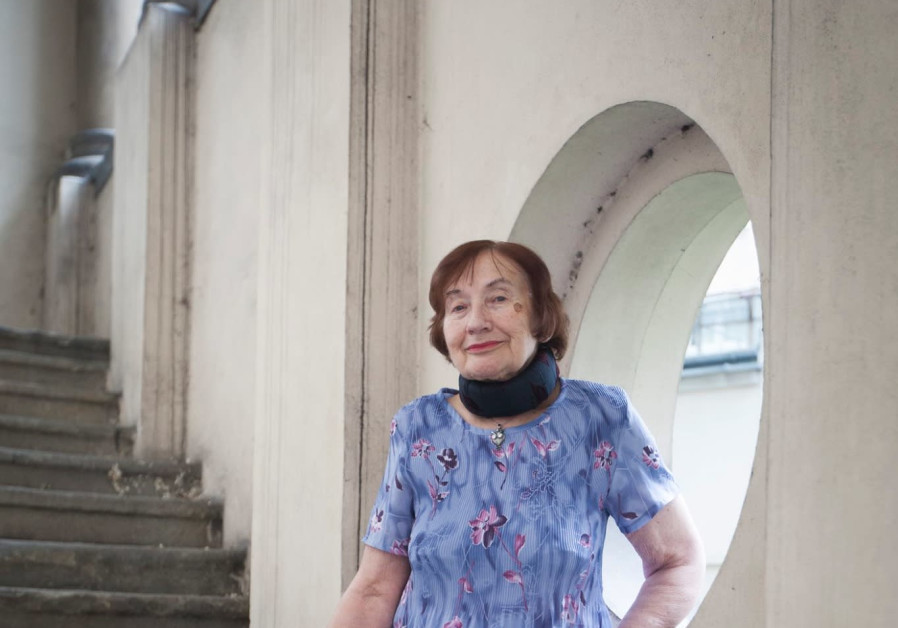“So maybe the frost, since you had nothing to wear, and yes, it was freezing, it was horrible, but it wasn’t the worst. So maybe the living conditions when there was a thousand, or eleven or twelve hundred people in one barracks where only 600 should be and it’s way too many and it’s horrible when people cannot hold it anymore and just pass urine that runs down your leg. It is horrible but it’s not the worst. So maybe lice? Yes, millions, thousands of lice but it’s not the worst. The worst thing is the humiliation. The humiliation of the human being. The fact you’re not even being treated like an animal but like a cockroach, like a flea, like a lice that needs to be crushed. That is the worst.
“But maybe I should mention a thing that, I don’t know, maybe is even worse – the pain of saying farewell. When you realize you’re seeing your brother, your mother, your father for the last time, I think that’s even worse.”
The nightmares haunt Turski nonstop. He doesn’t need any prompt to be reminded of the horrors he endured more than 70 years ago.
Now, June 26 will be a third: Turski’s birthday. He feels honored and privileged but undeserving of it.
A teenager when the war broke out, he survived two death marches and weighed just 32 kilograms when he was liberated. He remembers being “on the edge of exhaustion and life itself.”
“I will say something that’s cruel and horrible, but when my first death march started – it took seven and a half days and for two of those we marched 49 kilometers in minus 20 Celsius – it was in a way a sign of hope. Why? Because those who were shooting us were raised to think of us as cattle but we saw their huge fear that the Russians might show up any moment. Their fear was our hope.”
And it is this hope that will be celebrated on the new Holocaust Survivor Day, initiated and spearheaded by JCC Krakow along with an international committee of prominent Holocaust activists and Jewish communal leaders.
Unlike the two other memorial days that remember the six million Jews who perished, this “is not a day to condemn but rather a day to honor and learn,” says Jonathan Ornstein, executive director of the Jewish Community Centre of Krakow (JCC) that is spearheading the initiative.

“We Jews have to be careful when we teach about the Holocaust. We must never forget but we must also be mindful of not basing too much of our identities as Jews on tragedy. Holocaust Survivor Day is necessary because the survivors are necessary to our identities as Jews. They remind us of what is best in our spirit. No matter what has befallen our people through history we always move forward and choose over and over to continue to live and continue to live as Jews.”
According to the Conference on Jewish Material Claims Against Germany, there are some 400,000 Holocaust survivors today. More than half live in Israel and about 85,000 in the United States. Their numbers have remained relatively unchanged over the years because while some have died, new groups were recently recognized as Holocaust survivors. These include people from North Africa and those who lived in towns in Romania and Bulgaria that have only now been recognized as ghettos.
Over the years, in many different ways, survivors have been honored. However, the JCC has launched an international appeal, marking the first time survivors will be celebrated on a global scale on the same day. The centre is offering help in organizing programs to suit the needs of individual Jewish communities.
It is perhaps apt that the initiative comes from Poland where 98 percent of the pre-1939 Jewish community were murdered. “We cannot omit our Polish roots,” Turski stresses.
“This is the place that for one thousand years was incredibly important for Hasidism, for Zionism, for Bundizm, for great Polish ideas, for great material achievements. We’re supposed to just leave that? Of course maybe it will happen that we will. But for now I think we should be the custodians of this heritage. If not us – who should do it?”
One-and-a-half thousand Holocaust survivors live in Poland, among them 85-year-old Zofia Radzikowska who was born in Krakow and survived the war by living with her mother under false papers claiming they were Christian. Unfortunately, because her father looked Jewish, he was unable to obtain a new identity and moved into the ghetto so he wouldn’t risk the lives of his family. Before the ghetto closed, Zofia and her mother visited him one last time after which he was transported to Auschwitz and killed.

“After the war my mother and I came back to Krakow and I have lived here ever since. It is my home. I do not see it only as a place of tragedy. It is also the beautiful city where I grew up, had a career, got married, had a son and now have grandchildren. I think Holocaust Survivor Day is a wonderful initiative. We are a living bridge to a past that was almost lost. We are still here and want to tell our stories.”
But the day is also a chance to draw attention to survivors who need help and galvanize support for them. About 60,000 live in poverty in Israel and nearly 15,000 in the United States.
“Some of them came from the former Soviet Union to Israel without pensions and at a time in their lives when they could not work anymore. They were not recognized fully as Holocaust survivors because they were neither in camps, nor in ghettos, but were considered flight cases as most of them fled from the German army. They get from the Israeli government a one-time annual payment of about $1000. But lately we have managed to convince the German government to give them an additional compensation of $1 200 a month for the next two years,” says Colette Avital, chairperson of the Center of Organizations of Holocaust Survivors in Israel.
The COVID-19 pandemic has also taken its toll.
“Today, many survivors have been re-traumatized by the coronavirus pandemic as they experience the need to stockpile food and supplies, remain ‘hidden’ in their homes, and the sudden loss of friends and family,” observes Ulrika Citron, board member of the University of Southern California Shoah Foundation.
Although Jewish organizations are helping, many survivors are struggling. “As survivors age their needs become more complex. Physical conditions that stem from severe malnutrition and stress in early life begin to emerge – bone, foot and dental problems are common,” Citron says. “They also tend to experience chronic depression, anxiety, and sleeping disorders, and the resurfacing of emotional traumas related to losses experienced during the Holocaust itself. We are also seeing a significant increase in the number of survivors suffering from dementia, who only remember their earliest, most traumatic memories.”
While Jonathan Ornstein of the JCC concedes that such a day should have happened years ago, he feels it’s not too late.
